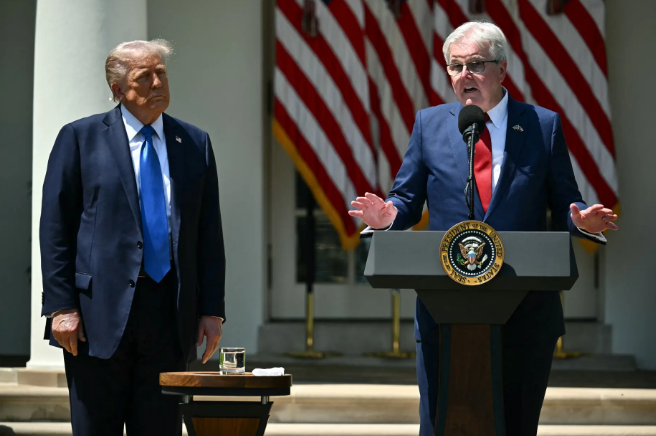Former President Donald Trump marked the National Day of Prayer by signing an executive order establishing a new presidential commission aimed at protecting and promoting religious liberty across the United States.
The Religious Liberty Commission, as outlined in the executive order, will investigate perceived threats to religious freedom and recommend policies to bolster protections for faith communities. The White House says the initiative is part of a broader effort to “restore and safeguard religious liberty for all Americans.”
While the order itself does not name specific religions, the accompanying fact sheet and recent White House actions make clear the initiative is heavily focused on Christianity. This comes on the heels of Trump’s earlier formation of a “Task Force to Eradicate Anti-Christian Bias” and the launch of a White House Faith Office.
Speaking in the Rose Garden, Trump suggested that his administration is actively working to reintegrate religion into public life. “Separation [of church and state]? Is that a good thing or a bad thing? I’m not sure… We’re bringing religion back to our country. It’s a big deal,” he said.
The Religious Liberty Commission will be tasked with preparing a comprehensive report identifying threats to religious expression. According to the order, recent government policies have “threatened America’s unique and beautiful tradition of religious liberty,” citing concerns such as restrictions on faith-based school attendance and potential funding penalties for religious nonprofits.
The Commission is set to expire on July 4, 2026—coinciding with the nation’s 250th anniversary—unless extended by the administration.
Political and Religious Implications
Critics argue that the initiative is more symbolic than substantive, intended primarily to appeal to Trump’s evangelical base. Melissa Deckman, CEO of the Public Religion Research Institute (PRRI), says the effort reflects concerns among White evangelicals, 66% of whom believe that Christians face discrimination equal to or greater than other groups. PRRI data also shows that 78% of Americans oppose creating a federal task force to combat anti-Christian bias.
“This commission and task force are rewards to Christian nationalist groups who see their cultural loss of dominance as persecution,” said Deckman.
Andrew Thompson, a political science professor at the University of Pennsylvania, warned the order could signal deeper efforts to embed Christian fundamentalism in public policy. “Don’t miss the forest for the trees,” Thompson said. “This is about power and executive overreach more broadly.”
Leadership and Direction
The Commission will be chaired by Dan Patrick, the Lieutenant Governor of Texas. A vocal Christian conservative, Patrick has backed legislation requiring the display of the Ten Commandments in public school classrooms and has described the U.S. as a “Christian nation.”
At the Rose Garden event, Patrick stated, “We are a nation birthed by prayer, founded on the Judeo-Christian ethic… but that is no longer the case. The last Administration attacked people of faith for four years.”
The Religious Liberty Commission marks a significant escalation in the Trump administration’s focus on religious identity in government, with critics and supporters alike watching closely to see how it may shape national policy moving forward.









































